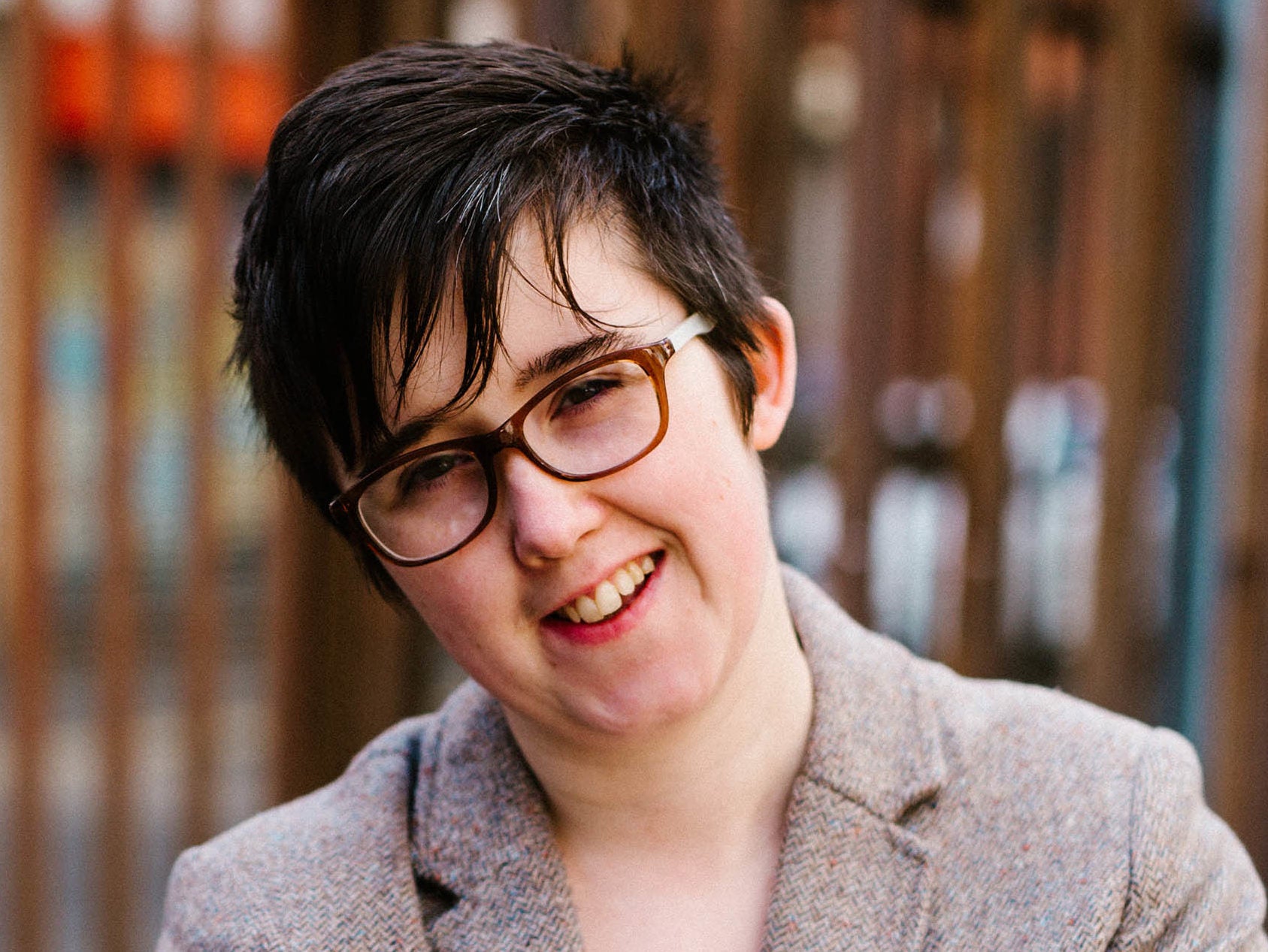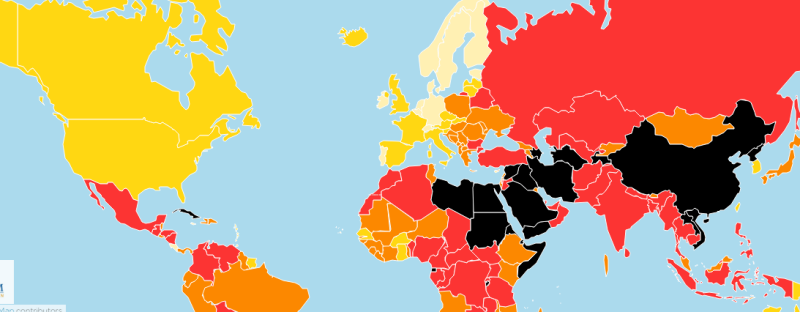
The UK has slipped down the world press freedom rankings after a year which saw reporter Lyra McKee shot dead and two journalists needlessly held on bail for months as a result of protecting their sources.
Reporters Without Borders (Reporters Sans Frontieres – RSF) has placed the UK at 35 out of 180 countries in its 2020 World Press Freedom Index.
The UK was 33rd in last year’s rankings, an improvement on 40th place where it had sat for the last two years.
The UK hosted an inaugural media freedom conference in July last summer, but RSF said its efforts promoting the issue to other countries were “undermined by domestic developments”.
Rebecca Vincent, RSF’s UK bureau director, said: “With coronavirus and other converging crises presenting unprecedented threats to press freedom globally, it is more important than ever for democratic states to lead by example.
“The UK should be performing better on the World Press Freedom Index, and must address these domestic concerns as a matter of priority.
“Concrete steps should be taken to ensure the safety of journalists in the wake of Lyra McKee’s murder, and Julian Assange should be released – and certainly not extradited to the US.”
In April last year McKee (pictured) became the first journalist to be killed on UK soil as a result of her work since Martin O’Hagan in 2001.
She was shot as she observed rioting in Derry, a moment RSF said marked a “staggering low point for press freedom in the UK”.
A man has been charged with McKee’s murder and a second man has been charged in connection with the rioting, but police are continuing in their fight to bring “every single person who was involved that night to justice”.
Also in Northern Ireland, investigative journalists Trevor Birney and Barry McCaffrey were left on bail for ten months after having their homes raided over an allegation they stole confidential materials for their documentary No Stone Unturned, which revealed the names of the suspects of the 1994 Loughinisland Massacre for the first time.
And journalists in Northern Ireland who cover crime and paramilitary activity still face “serious threats to their safety”, RSF said. Press Gazette reported in January that editors believe police are failing to share enough details about immediate threats to help journalists take precautions.
RSF also criticised the fact a National Committee for the Safety of Journalists, to be tasked with coming up with a National Action Plan on safety, has not yet been established by the Department for Digital, Culture, Media and Sport despite its announcement that it would do so last July.
The campaign group also warned that if Wikileaks founder Julian Assange is extradited from the UK to the US and found guilty of espionage charges, it “could create a new and dangerous legal precedent allowing for the criminal prosecution of journalists for doing their constitutionally-protected jobs”.
Assange’s extradition hearing in London is due to continue next month.
The US climbed three places to 45th in this year’s Press Freedom Index, despite “vitriolic” attacks from President Trump and verbal and physical attacks on journalists that have “deepened and intensified”.

Global picture
Globally, RSF said there were five converging crises affecting the future of journalism:
- A geopolitical crisis because of aggressive authoritarian regimes
- A technological crisis because of a lack of democratic guarantees
- A democratic crisis due to polarisation and repressive policies
- Suspicion and hatred of the media leading to a crisis of trust
- And an economic crisis cutting incomes for quality journalism.
RSF secretary-general Christophe Deloire said: “We are entering a decisive decade for journalism linked to crises that affect its future.
“The coronavirus pandemic illustrates the negative factors threatening the right to reliable information, and is itself an exacerbating factor.
“What will freedom of information, pluralism and reliability look like in 2030? The answer to that question is being determined today.”
Norway remains at the top of the Index, followed by Finland, Denmark, Sweden and the Netherlands. North Korea is in last place.
Picture: Excalibur Press
Email pged@pressgazette.co.uk to point out mistakes, provide story tips or send in a letter for publication on our "Letters Page" blog
